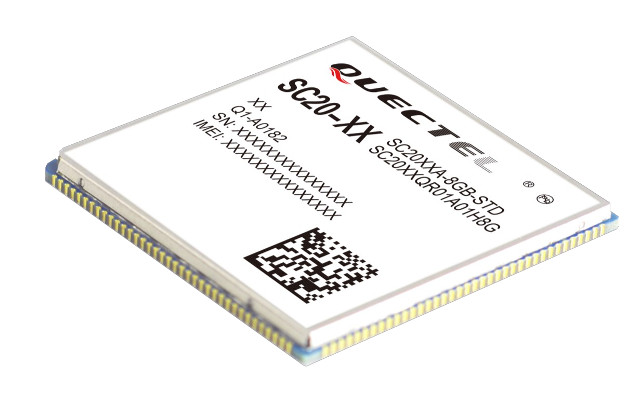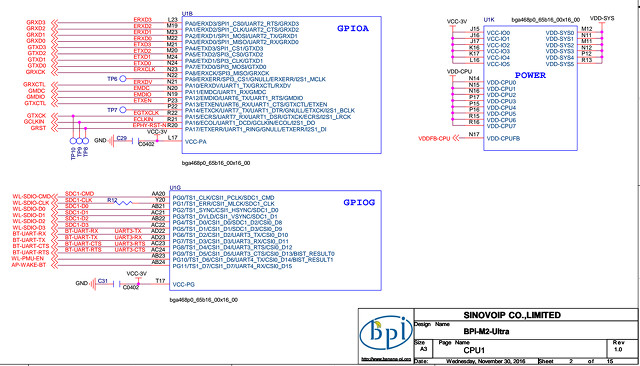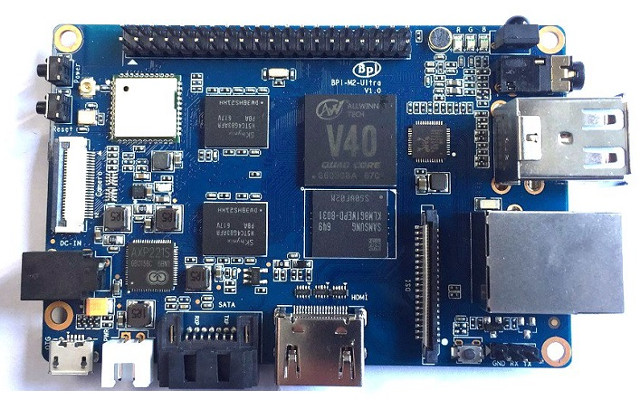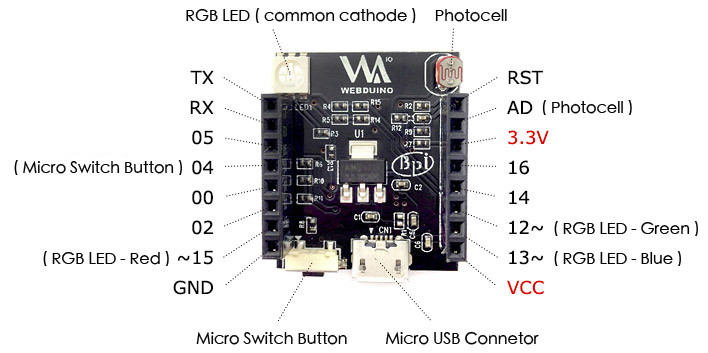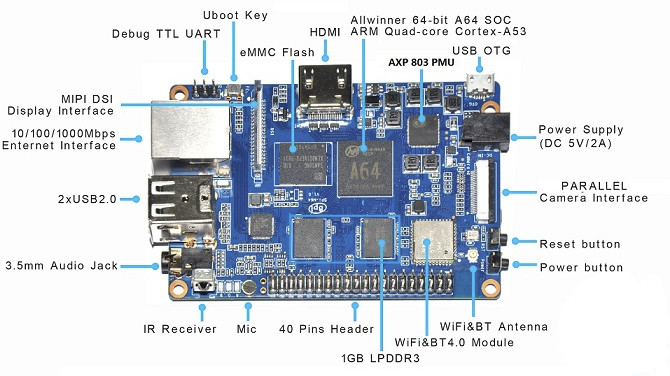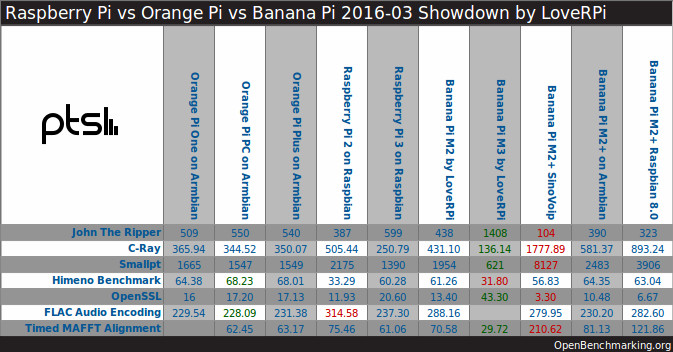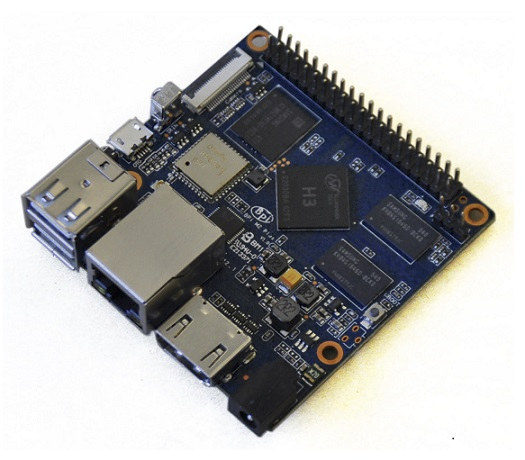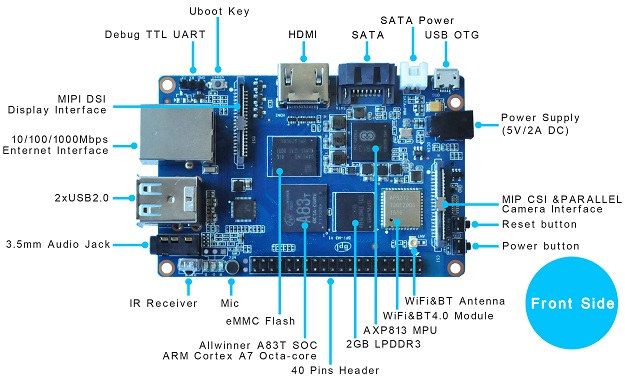Google may just have released Android Things operating systems for IoT applications, but its big brother – Android – has already gotten into some other IoT systems such as Quectel SC20 module powered by a Qualcomm processor and supporting LTE, WiFi, Bluetooth LE, and GNSS functions. Quectel SC20 comes in different flavors to cater for various markets, but all module share most of the same specifications: SoC – Unnamed Qualcomm processor System Memory – TBD Storage – 8GB flash Cellular Connectivity – FDD LTE, TDD LTE, TD-SCDMA, EVDO/DCMA, WCDMA, and GSM; antenna: MIMO 2×2, supports Rx-diversity Other Wireless Connectivity WiFi – 2.4GHz 802.11b/g/n (SC20-CE/-W); Dual band 802.11a/b/g/n/ac (SC20-E/-A/-AU/-J) Bluetooth 2.1+EDR/3.0/4.1 LE GNSS – GPS, GLONASS, and BeiDou Interfaces LCD – 4x lanes MIPI-DSI, 1.5Gbps each, HD (720p) @ 60fps Camera – MIPI-CSI, up to 1.5Gbps per lane, supports two cameras 2-lane MIPI_CSI for rear camera, up to 8MP 1-lane MIPI_CSI […]
Banana Pi BPI-M64 & BPI-M2 Ultra Boards PDF Schematics Published
SinoVoip has recently released PDF schematics for both of their Banana Pi boards, namely BPI-M64 board powered by Allwinner A64 processor, and BPI-M2 Ultra board based on the latest Allwinner R40 SoC with an on-chip SATA interface. For most boards on the market, this should not be news, but SinoVoip does not always release schematics in a timely manner, so you may want to be noticed when it happens: BPI-M64 schematics – https://bananapi.gitbooks.io/bpi-m64/content/en/bpi-m64schematicdiagram.html BPI-M2 Ultra schematics – https://bananapi.gitbooks.io/bpi-m2-ultra-open-source-single-board-computer/content/bpi-m2ultraschematicdiagram.html The clear benefit of BPI-M2 Ultra is the presence of a SATA connector NOT implemented via a slow USB 2.0 to SATA bridge, but instead directly through the SATA interface of the R40 quad core processor. As for BPI-M64 ($46), it can be compared to Pine64+ with 2GB RAM and a WiFi module ($39), and despite the higher price it does come with some benefits like adb over OTG working, it is […]
Banana Pi M2 Ultra Allwinner R40 Development Board with SATA & GbE Sells for $46
Allwinner A10 and A20 processors have been quite popular in the past since they could handle Fast or Gigabit Ethernet and SATA natively, included decent multimedia capabilities, and were found in low-cost hardware such as Cubieboard 2 or MeLE A1000. Since then we’ve had a few boards with SATA using newer and faster processors without SATA IP, meaning it was usually implemented using a USB 2.0 to SATA bridge leading to mediocre to average performance depending on the implementation and selected bridge. Allwinner R40 is the successor of Allwinner R20 with a faster quad-core Cortex A7 processor, but keeping Gigabit Ethernet, SATA, and most features of its predecessor. The good news is that Banana Pi has now launched the promised M2 Ultra development board based on the new processor for $45.80 + shipping on Aliexpress (Total for me: $48.35). Banana Pi M2 Ultra specifications: SoC – Allwinner R40 quad-core ARM […]
Webduino Smart ESP8266 Board is Designed to be Programmed via Websocket and Blockly Editor
Webduino Smart board reminds me of Witty ESP8266 board with its RGB LED and photocell sensor, but the design is a little different, and does not come with an extra USB to TTL board, as it’s designed to be programmed over the air using Blockly Editor. Webduino Smart specifications: WiFi Module – AI Thinker ESP-12F module with Espressif ESP8266 WiSoC Connectivity – WiFi 802.11 b/g/n 2x 8-pin headers with GPIOs, ADC (Connected to Photocell), UART, VCC, 3.3V, GND, and Reset. USB – 1x micro USB port for power Misc – Photo resistor, RGB LED, micro switch button for firmware upgrade (connected to GPIO 4) Dimensions – 3 x 2.5 cm (See comparison to AA and AAA batteries below) While Witty board was mostly targeting mainland China market with all documentation in Chinese, Webduino Smart does have some documentation in English, and is made by Banana Pi team (SinoVoIP). The default […]
BPI-M64 Development Board is the first 64-bit Banana Pi Board
Sinovoip has gone on the Allwinner A64 and 64-bit ARM bandwagon, announcing a Pine A64+ competitor, with Banana Pi BPI-M64 (or just Banana Pi M64) with 2GB RAM, 8GB eMMC flash, Gigabit Ethernet, and more. Banana Pi BPI-M64 board specifications: SoC – Allwinner A64 quad core ARM Cortex A53 processor @ 1.2 GHz with Mali-400MP2 GPU System Memory – 2GB DDR3 Storage – 8GB eMMC flash (16, 32 and 64GB options), micro SD slot up to 256 GB Video Output / Display interface – HDMI 1.4 up to 4K resolution @ 30 Hz, MIPI DSI interface Audio – HDMI, 3.5 mm headphone jack, built-in microphone Connectivity – Gigabit Ethernet + 802.11 b/g/n WiFi & Bluetooth 4.0 (AP6212) USB – 2x USB 2.0 host ports, 1x micro USB OTG port Camera – MIPI CSI interface (which I guess you support parallel cameras via some kind of bridge) Security – Hardware security […]
Software Matters, or How SinoVoIP Crippled Banana Pi M2+ Performance.
The most common way to use a development board is to simply go to the manufacturer website, and download the images from there. They are the ones who made the hardware after all, and they should be the most knowledgeable about their platform. But it may not always be true as tkaiser found out when he ran some Phoronix benchmarks on Banana Pi M2+ (aka BPI M2+) board with SinoVoIP (the manufacturer), Armbian, and Raspbian images. The results speak for themselves. The last three columns are what is of interest here, and in some benchmark Banana Pi M2+ is about 3 times slower with SinoVoIP image compared to Armbian, while with others the performance is quite similar. John The Ripper password cracker benchmark shows a massive difference between distributions… … while FLAC audio encoding not so much. So what’s going on here? First Jon the Ripper is a multi-threaded applications, […]
Banana Pi BPI-M2+ is another Compact Allwinner H3 Development Board
Allwinner H3 processor has become popular on hobbyist boards thanks to several Orange Pi board, especially Orange Pi PC and Orange Pi One due to their ultra-low prices, respectively $15 and $10. Olimex is also involved with their H3-OLinuXino-NANO board, and now at least one more company is about to release another Allwinner H3 board with SinoVoip’s Banana BPI-M2+. Banana BPI-M2 Plus specifications: SoC – Allwinner H3 quad core Cortex A7 @ 1.2 GHz with an ARM Mali-400MP2 GPU up to 600 MHz System Memory – 1GB DDR3 Storage – micro SD card slot up to 64GB, optional 8GB eMMC flash Video & Audio Output – HDMI with CEC support Connectivity – Gigabit Ethernet, optional 802.11 b/g/n WiFi (AP6212). More options: AP6181, AP6335 USB – 2x USB 2.0 host ports, 1x micro USB OTG port Camera – CSI Interface Expansions – 40-pin Raspberry Pi compatible header Debugging – 3-pin UART […]
Banana Pi BPI-M3 Development Board Features Allwinner A83T Octa core Processor
Banana Pi developers, in this case SinoVoIP, and not LeMaker, are about to launch a new board: BPI-M3 powered by Allwinner A83T octa core Cortex A7 processor with 2GB RAM and 8GB eMMC. Banana Pi M3 board specifications: SoC – Allwinner A83T octa-core ARM Cortex-A7 @ 2.0 GHz with PowerVR SGX544MP GPU supporting OpenGL ES 2.0/1.1, OpenCL 1.1, DX 9.3. System Memory – 2 GB LPDDR3 Storage – 8 GB eMMC + SATA (via Genesys GL830 USB bridge, shared with 2 USB ports) + micro SD slot Display Interfaces / Video Output – HDMI 1.4 up to 1920×1200, MIPI DSI connector Audio – 3.5mm headphone jack, microphone, HDMI audio Camera I/F – MIPI CSI and Parallel camera interfaces Connectivity – Gigabit Ethernet (Realtek RTL8211E/D), 802.11 b/g/n Wi-Fi and Bluetooth 4.0 (AP 6212 module) USB – 2x USB 2.0 host port, 1x micro USB OTG Debugging – UART for console Headers […]


